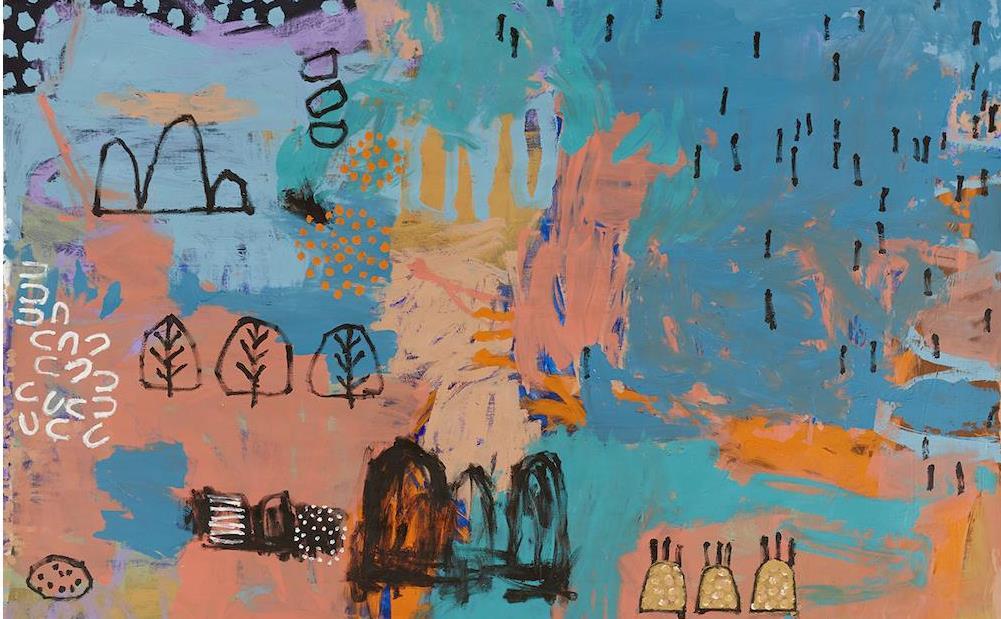Many creatives have had to be resourceful during the pandemic due to the cancellation of gigs, exhibitions and other opportunities for generating income. For Aboriginal and Torres Straight Islander artists there’s an additional challenge, because they depend on sales from a precarious art market where work is often not purchased in an ethical manner.
Our Art Is Our Lifeline is a new national campaign launched by the Indigenous Art Code (IartC) in partnership with Macquarie Group, which encourages the ethical purchasing of artwork by talented First Nations artists during these unprecedented times, as wider audiences embrace online sales.
Nine artists including Mick Harding (Taungurung artist, VIC), Jakayu Biljabu (Martu artist, WA), and Fiona Elisala-Mosby (Kalaw Kawaw artist, Torres Strait Islands) are featured as part of the campaign.
The campaign will explore their artistic practices and outline their experiences during the pandemic, giving them an opportunity to share their views on what constitutes fairness within the Indigenous visual arts industry.
Read: 5 face masks to make public appearances fun
IartC Chair, Stephanie Parkin said one of the ways the organisation helps support Indigenous artists is by ensuring their artwork is handled ethically.
‘The Indigenous Art Code is committed to working with artists to ensure they are able to exercise and maintain agency in decision-making processes, which involve the sale and licensing of their artwork,’ she said.
For those who are looking to purchase Indigenous artworks, one of the tips from IartC is to look for art centres, galleries and licensed product retailers who are members of the Indigenous Art Code.
For the last 13 years, the organisation has helped to promote ethical and transparent practices across the industry, from artists and art centres to galleries and retailers of licensed merchandise.
One of the artists participating in the campaign, Torres Strait Islander artist and Moa Arts member Elisala-Mosby, said the last few months have been a challenge for Indigenous artists.
‘Lockdown has been hard,’ she admits. ‘We had our calendar mapped out for the year, with workshops, exhibitions and deadlines. With coronavirus, all of that changed.’
She adds that without support, things would have been even tougher. ‘You draw your strength from your home, your family, and your surroundings. That’s what builds you up, to continue your journey.’
And now that lockdown is easing in some parts of the country, resilient artist are emerging with renewed purpose and they’re relying on audiences for support.
Their message is clear: make sure you buy from sources that treat First Nations artists fairly and transparently.
